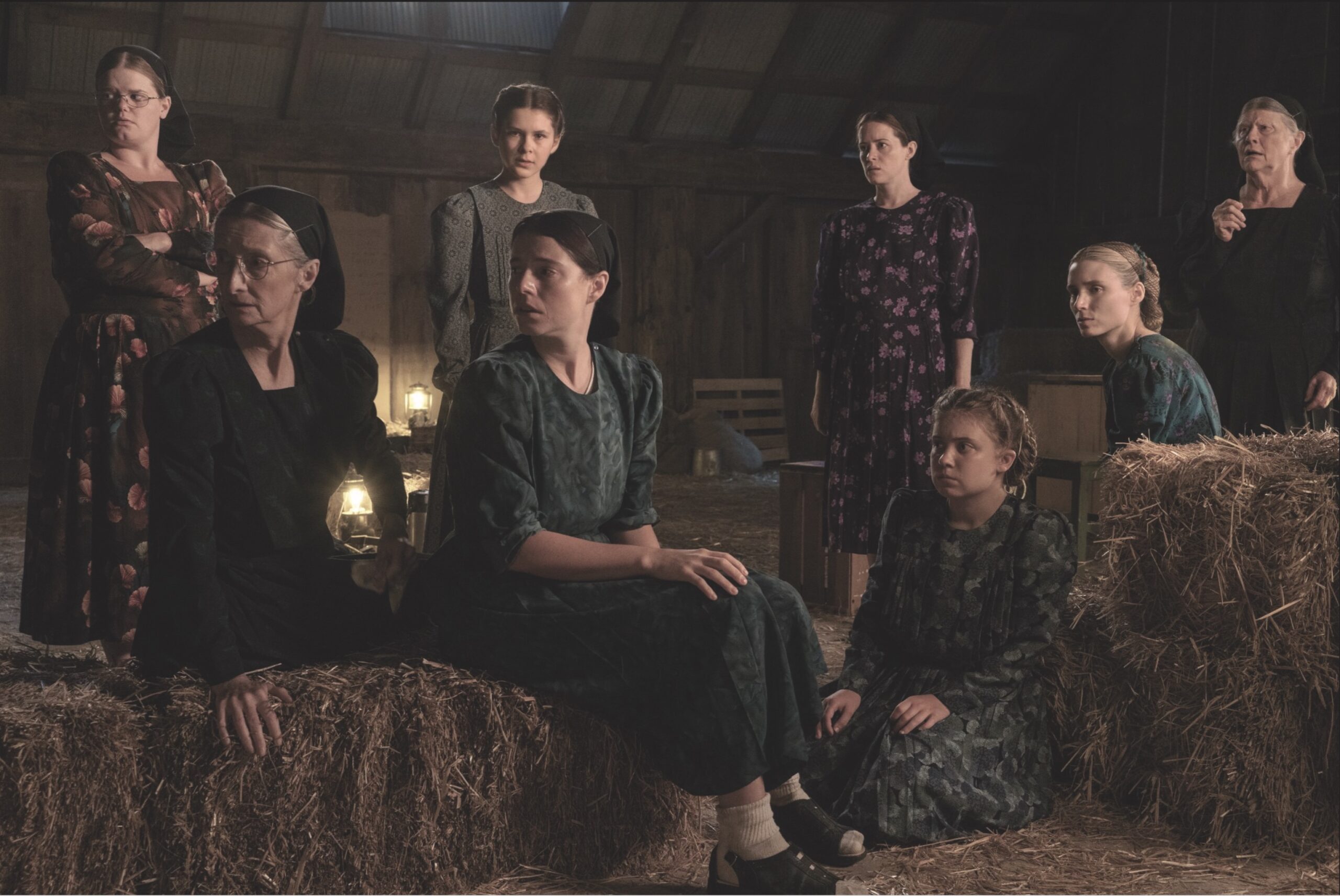Women Talking, written and directed by Sarah Polley and based on the Miriam Toews novel, both reveals and hides the story in its title. The film is indeed around 100 minutes of women in conversation, but there is no dismissing it as idle chatter. The sexual assaults that had long been an open secret in this tight-knit Mennonite colony are now exposed, and the perpetrators of these crimes, only briefly in the custody of authorities, are being returned to their community. Gathered together in a hayloft, the women have one day to make the biggest decision of their lives. What should they do in response to this betrayal?
A few of them, led by Scarface Janz (Frances McDormand), fear reprisal if they defy the men, and opt to do nothing. But some — Salome (Claire Foy), Ona (Rooney Mara), Mariche (Jessie Buckley), Agata (Judith Ivey), Greta (Sheila McCarthy) and others — debate the more popular options. Should they stay and fight back against the tyranny that allows the assaults, or leave with the children? The solution can only be found through talking: with each other, at each other and for each other.
You may unsubscribe from any of our newsletters at any time.
This meeting, as one character notes, is both “doomsday and a call to prayer.” The faith of these women is never a question; rather, they question the society created and controlled by men in the alleged name of that faith.
Their debate is both philosophical and practical: can the boys be saved from continuing this patriarchal oppression? Will abandonment of the colony mean they will not be allowed to enter the Kingdom of Heaven? Some decide that a God who would reject them for taking a stand is not a God they want to worship; for others, such a fate would be devastating. And some have faith that God will follow them should they leave.
Though the world they occupy might be small, the women know the assaults are unnatural. Polley never shows us these horrors directly, but we see the aftermath: Ona is pregnant with no idea of the father’s identity; a teenage girl now dresses as a boy and chooses muteness. Some of the women are gentle, some are angry, some are logical. But for each of them, their religion (or what they are told its rules are) lies in contrast to what they realize is their right as human beings to be free from this cycle of devastating violence.
More on Broadview:
- ‘This House Is Not a Home’ tells a moving story of Indigenous dispossession
- In Emma Donoghue’s new book, spiritual discovery is a gruelling but rewarding journey
- Holodomor: 90 years later, new graphic novel explores Ukrainian genocide
The film is a masterclass not only in writing but in ensemble acting. Polley gives each nuanced viewpoint its moment of consideration; these characters are neither belittled for their situation or faith, nor are they coddled. This allows moments of rage, pain and even joy as the women move toward a necessary unity. Cinematographer Luc Montpellier adds to this a centring of each woman in her turn, though the desaturated palette is perhaps a bit extreme, making the film look dull in comparison to the passionate debate.
Women Talking asks its audience to truly listen to those we rarely hear, to understand the struggle of their faith, their need for justice and the gravity of the change they seek to make.
***
Shelagh Rowan-Legg is a writer and filmmaker living in Montreal.
This essay first appeared in Broadview’s January/February 2023 issue with the title “Hayloft reckoning.”












